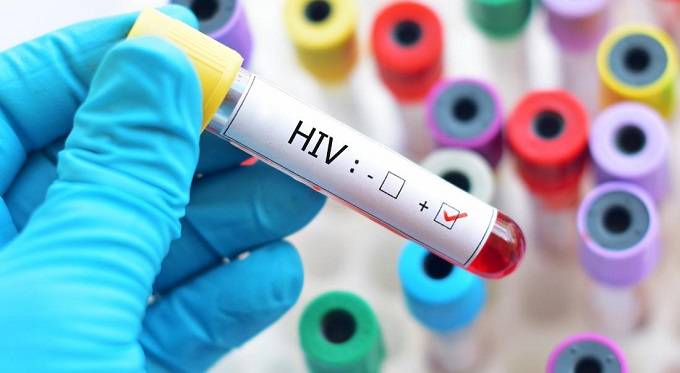HIV+ people risk developing drug resistant strain

Thandeka Moyo-Ndlovu, Health Reporter
SCORES of people living with HIV are at risk of developing a drug resistant strain after failing to access their medication due to shortages at some health facilities.
Positive mothers may also transmit the virus to their newborn babies as the life-saving Nevirapine is said to be in short supply.
Experts say one known cause of HIV drug resistance is lack of adherence to prescribed drugs.
Zimbabwe has not been spared by HIV drug resistance with a World Health Organisation (WHO) HIV Drug Resistance Report listing the country among the top six countries out of 11 that are affected from Africa.
An HIV drug regimen has three lines.
The first is taken by most patients, especially those who seek treatment early after infection.
The second is more expensive and more toxic with more side-effects and is given to people who are resistant to the first.
The third line is the most expensive and most toxic.
It is given to patients who have developed a resistance to the second line and is generally caused by defaulting on treatment or taking too long to seek treatment once one is infected.
As long as a person takes medication as prescribed and follows a healthy lifestyle, they may live for many years with the virus.
Two out of 30 HIV-positive people on ART in Zimbabwe have shown signs of resistance to the commonly used and affordable drugs, Efavirenz and Nevirapine (NVP) according to the WHO.
An official at a council clinic said most institutions were struggling to provide NVP for their clients.
“The situation is bad and we may end up risking the lives of newborn babies if the situation is not dealt with immediately. We have also failed to provide second line medication to our clients for some time now and they end up defaulting which will cause more health problems,” she said.
A local HIV and Aids activist Mr Dumisani Nkomo, who is on the second line regime, has been taking one tablet instead of two for weeks due to the shortages.
He called on the Government to prioritise HIV even in the Covid-19 era as both viruses are equally destructive.
Mr Nkomo collected tablets from the United Bulawayo Hospitals last week and was only given one tablet per day for three months instead of two. “I live in constant fear of becoming resistant to my medication which is more toxic than the first line and I cannot imagine coping with the third line if that happens,” said Mr Nkomo.
He said the shortages had been going on for weeks and mostly the older members of the public are affected.
“Yes, we are all aware that Covid-19 is real and must be dealt with but it is also dangerous for our leaders to suddenly shift all attention to the pandemic and forget we still have to fight HIV. Children born to positive parents deserve to be Aids free hence the Government should ensure that Nevirapine is always readily available,” he said.
A pharmacist from a public institution, who spoke on condition of anonymity, confirmed that last week there was a nationwide stockout of Nevirapine.
“Yes, we did have a nationwide stockout of NVP suspension for prevention of mother to child transmission (PMTCT) for about a week but it has just been resolved and we are okay for now,” she said.
Ms Talent Jumbo the president of Zimbabwe Aids Network said they will continue advocating for their members to be prioritised and ensure medication is available when they need it.
“The crisis that we are facing could be a sign of poor planning as this could have been anticipated a while ago. Our Government should treat this as a matter of urgency so that these shortages are addressed,” said Ms Jumbo.
“We call on policy makers to prioritise people’s rights to health as enshrined in the Constitution. Those working for the Ministry of Health (and Child Care) should be able to make projections so that budgets are allocated on time and procurements done even amid a crisis like this one,” she added.
Research scientists however worry over the rising cases of drug resistance in HIV which may subsequently lead to more HIV-related deaths, new infections and increase in antiretroviral therapy (ART) costs.
National Aids Council chief executive officer Dr Bernard Madzima said the country had adopted multi-month dispensing in order to decongest health facilities due to Covid-19.
He said guidance is for health facilities to dispense at least three months’ supply depending on their stock status.
“However, the interpretation and implementation of the guidance may differ at operational level and this can result in stock-outs. The Ministry of Health and Child Care is currently carrying out an assessment of the current stock status at facility level in order to try and rationalise supplies,” said Dr Madzima.
He said Covid-19 has disrupted planned shipments which have in turn put pressure on the available stocks.
“The country is working with all partners involved in the supply of ARVs to ensure patients do not miss a single dose of their medicines. At the moment the situation is still under control and once the MOHCC has completed the assessment the country will be able to provide an adequate stock status,” he said. — @thamamoe










Comments